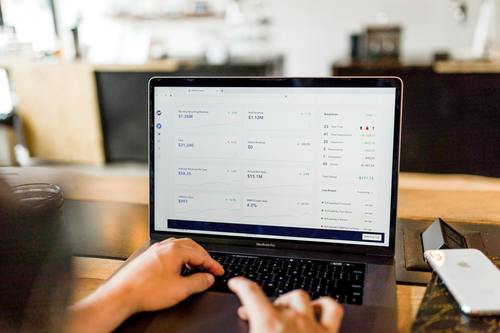Enhancing organisational sustainability with energy and carbon management dashboards
With net zero and carbon reduction increasingly becoming a focal point for organisations, support through energy efficiency and sustainable transformations projects are crucial to the success of a carbon reduction plan.
With net zero and carbon reduction increasingly becoming a focal point for organisations, support through energy efficiency and sustainable transformations projects are crucial to the success of a carbon reduction plan. However, driving down energy consumption and rolling out energy projects is the responsibility of more than one department in an organisation. Many people – from engineers to investors and from management to staff - need to be brought together to make success happen.
One powerful energy and carbon management software tool that offers to unite an organisation in supporting its sustainability goals is the energy dashboard. By providing near real-time data and insights into energy consumption, monitoring and targeting (M&T), and carbon management, energy dashboards can significantly enhance organisational engagement in nine significant ways.
1. Transparency and Accountability
Energy dashboards offer a transparent view of an organisation’s energy usage. Giving employees at all levels visibility of the impact their actions have on energy consumption and carbon reduction fosters a culture of accountability. When everyone in the organisation has access to energy and carbon management data and M&T information, it encourages more responsible behaviour and a collective effort to reduce energy waste and contribute to carbon reduction efforts.
2. Data-Driven Decision Making
With detailed and near real-time data at their fingertips, decision-makers can make more informed choices about energy and carbon management. Energy dashboards provide insights into patterns and trends, helping organisations identify areas where energy is being wasted and where improvements can be made. This data-driven approach ensures that energy-saving initiatives are based on solid evidence rather than guesswork.
3. Employee Engagement
Energy management software dashboards can be a powerful tool for engaging employees in sustainability initiatives. When employees are actively involved and committed to energy-saving initiatives, they are more likely to adopt and promote sustainable practices. A collective effort not only helps an organisation to achieve its sustainability goals but also improves operational efficiency and reduces costs, contributing to its long-term success
4. Cost Savings
One of the most tangible benefits of using energy dashboards is the potential for cost savings. By identifying inefficiencies and areas of high energy consumption, organisations can implement targeted measures to reduce their energy bills. These savings can then be reinvested into other areas of the business, further enhancing overall organisational performance.
5. Regulatory Compliance
Many organisations are subject to strict regulations regarding energy usage and environmental impact. Energy dashboards can help organisations stay compliant by providing the necessary M&T and carbon data to meet reporting requirements. This not only helps avoid potential fines and penalties but also demonstrates a commitment to sustainability to stakeholders and customers.
6. Enhanced Communication
Energy dashboards can serve as a central communication tool for sustainability efforts. By sharing energy usage data and progress towards energy-saving goals, organisations can keep employees informed and engaged. Regular updates and visualisations of energy data can be included in company newsletters, meetings, and intranet sites, ensuring that everyone is aware of the organisation’s sustainability initiatives.
7. Benchmarking and Goal Setting
Energy dashboards allow organisations to benchmark their energy performance against industry standards or internal targets. This benchmarking process helps set realistic and achievable energy-saving goals. By tracking progress towards these goals, organisations can celebrate successes and identify areas for further improvement.
8. Customer and Stakeholder Engagement
In an era where consumers and stakeholders are increasingly concerned about sustainability, energy and carbon management software dashboards can be valuable in demonstrating an organisation’s commitment to environmental responsibility. Sharing energy performance data with customers and stakeholders can enhance the organisation’s reputation and build trust.
9. Supplier Management
Energy dashboards also play a pivotal role in enhancing supplier management and bill accuracy. By providing detailed and near real-time data on energy consumption, these dashboards enable organisations to hold suppliers accountable for their energy use and ensure that billing is precise. Discrepancies in energy usage and billing can quickly be identified and addressed, reducing the risk of overcharges and improving financial accuracy.
Energy dashboards are more than just a tool for monitoring energy consumption; they are a catalyst for organisational engagement and cultural change. By providing transparency, enabling data-driven decision making, and fostering a sense of shared responsibility, energy dashboards can help organisations achieve their sustainability goals while also enhancing overall performance. Embracing this technology with an energy and carbon management software solution is a step towards a more sustainable and engaged future.
ENDS
Notes to Editors
For further information, please contact:
Pauline Scoins - Marketing and PR Executive
TEAM Energy
Phone: +44 (0) 01908 690018 Ext 204 /
Email: pscoins@teamenergy.com
EDW House, Radian Court, Knowlhill, Milton Keynes, MK5 8PJ
www.teamenergy.com
About TEAM
TEAM is an energy and sustainability consultancy. It helps organisations with large energy estates reduce consumption and carbon emissions to save money and meet commercial and compliance targets on their journey to net zero.
Founded in 1985, it has a long history of helping customers navigate changing definitions and certification standards. TEAM Energy is an Employee Ownership Trust (EOT), with employees having a direct stake in its customers’ success.
